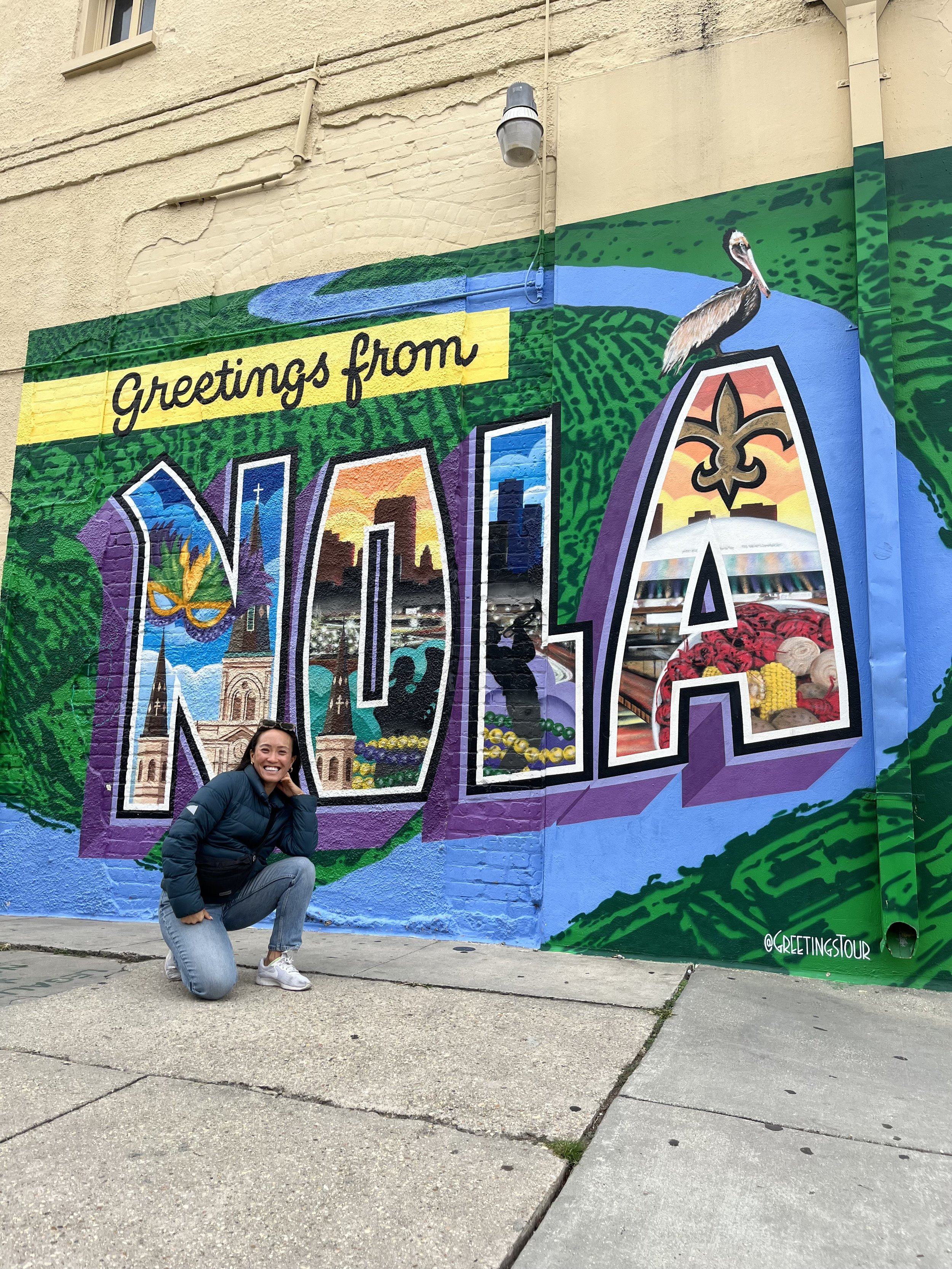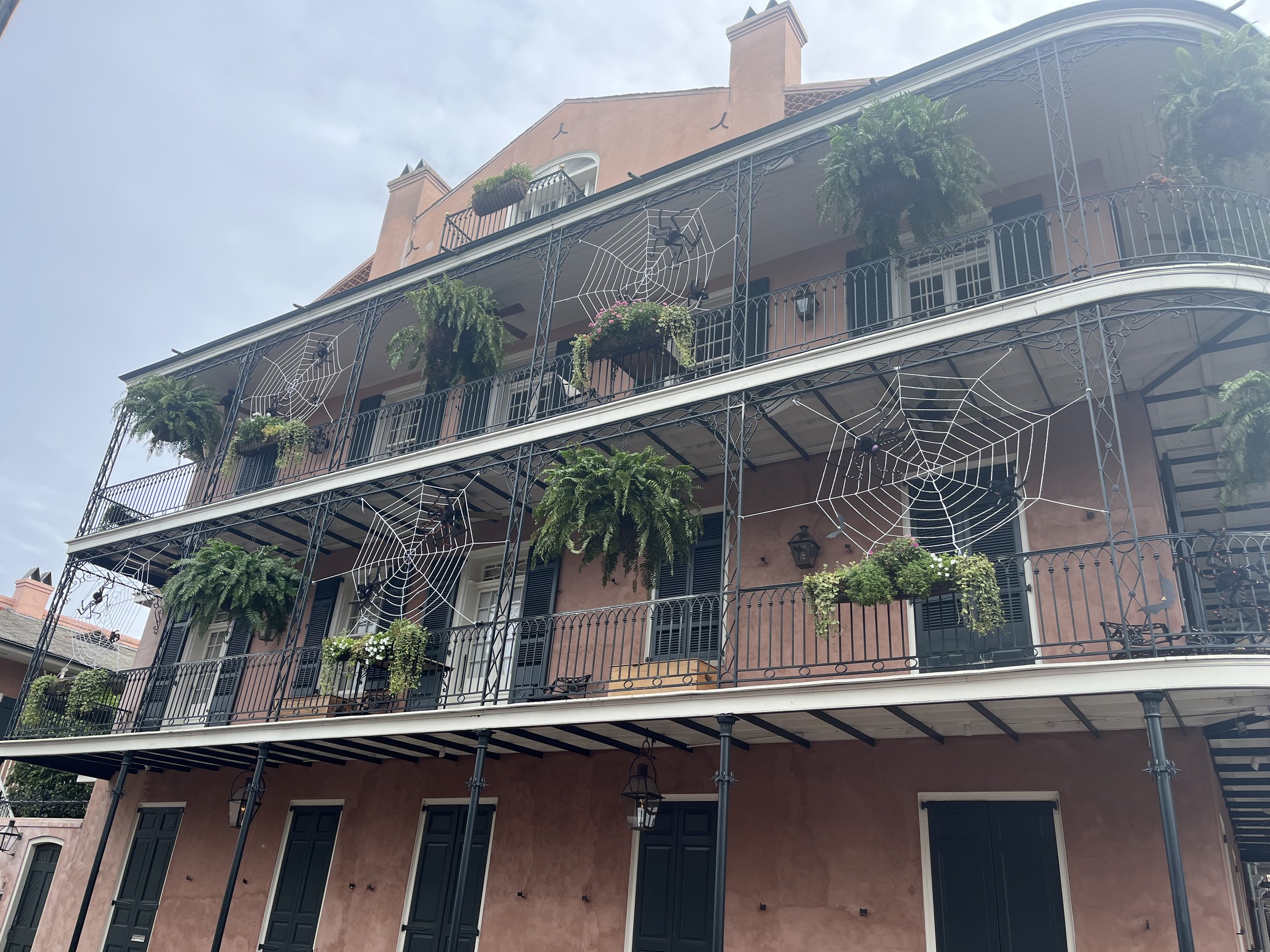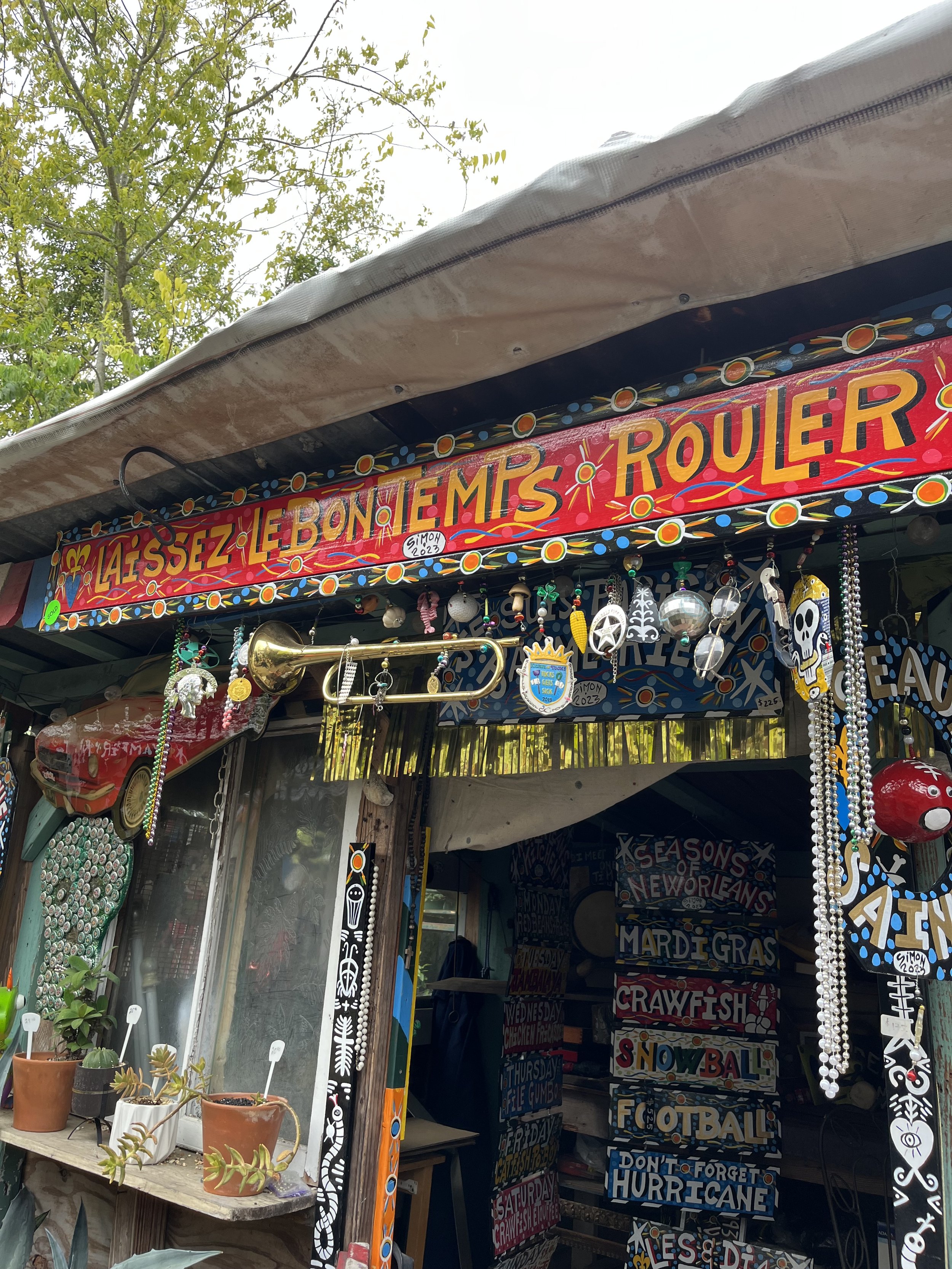When people tell me *cough* Europeans *cough* that the US has no culture, I tell them to visit New Orleans. Here, the prevailing misconception that the United States lacks cultural depth dissipates as the city proudly showcases its French, Cajun, Creole, and African heritage—a blend that defines its uniqueness.While my first few visits were extremely hazy and pretty much consisted of overindulging in the city’s food & drinks & parties, the more I go, the more I discover new things to fall in love with.
This time around, I was lucky enough to spend a week in NOLA around Halloween, with Chloe, a dear French friend of mine, which made me even more appreciative of the sometimes trashy, but always open and fun mindset of the USA, especially in the Big Easy. While I initially thought seven days might have been too long for a stay, it turned out to be just the perfect amount of time, especially because we were able to be part of the city’s Halloween celebration. There was of course, the usual debauchery on Bourbon Street, sometimes beautiful, sometimes kitchy decorated front porches, and a massive parade on Frenchman Street on the 31st (which is where the real party happens) it was also super interesting to see the city’s spiritual practices pertaining to All Saint’s Day.
Central to New Orleans' mystique is its deep-rooted connection to voodoo. We were lucky enough to attend the Backstreet Cultural Museum and Voodoo Queen Kalindah Leveaux Annual All Saints’ Day Commemoration, which began a the Tomb of the Unknown Slave at St. Augustine Catholic Church, with a traditional visit to the burial sites of loved ones. Libations, songs and prayers for ancestors known and unknown were shared at this historical site.
Originating from West African spiritual practices brought by enslaved people, voodoo found its sanctuary in the syncretism of faiths and cultures in the city. Often debated and misunderstood, voodoo remains an integral part of the city's cultural landscape. Merging African beliefs with elements of Catholicism, voodoo in New Orleans evolved into a complex amalgamation, intertwining deities, spirits, and rituals in a harmonious yet enigmatic manner. Halloween in New Orleans brought forth a unique blend of traditions, merging the city's voodoo mystique with age-old customs, including an all day voodoo fest at Voodoo Authentica. The ethereal atmosphere characterized by voodoo rituals, ceremonial dances, and the mesmerizing rhythm of drums, offered a glimpse into the spiritual heart of New Orleans.
Of course, you can’t visit New Orleans without being immersed in the musicality of the city. Everywhere you go, there’s live music being played. Whether it’s a DIY percussion group banging on plastic containers, a full jazz band, or just a singular singer with a mike and a guitar, New Orleans is a melting pot for musical innovation. The roots of jazz, one of America's quintessential musical genres, trace back to the African American communities of New Orleans. Elements of African music—syncopated rhythms, call-and-response patterns, and improvisation—melded with European musical traditions, creating a vibrant and innovative sound. African Americans in New Orleans brought a rich musical tradition that encompassed rhythms, styles, and instruments, profoundly shaping various genres and giving birth to iconic musical forms. We had a wonderful time visiting jazz bars on Frenchman Street.
The city's brass bands, second line parades, and vibrant street performances are deeply rooted in African musical traditions, fostering a sense of community celebration and expression. Moreover, the emergence of gospel music, blues, and rhythm and blues (R&B) found fertile ground in New Orleans' African American neighborhoods. These genres, deeply influenced by African musical elements, expanded the city's musical landscape, resonating with audiences far beyond its borders. There’s of course, bounce music—a hip-hop subgenre distinctive to New Orleans. Its lively beats, call-and-response lyrics, and infectious energy are deeply rooted in African rhythmic traditions, celebrating the city's multicultural essence. Plus it’s awesome to shake your ass too if we’re being honest… The city’s soul reveals the resounding echoes of African heritage that shape its most vibrant aspects.
Admittedly, a lot of the city’s charm is due to the French influence, adorning the city with architectural beauty and an exuberant joie de vivre. Central to New Orleans' cultural patchwork are the Cajuns—a group with a rich history that dates back to the 18th century. Originally French settlers in Acadia, Canada, they were exiled by the British in the mid-1700s, settling in Louisiana and transforming into the resilient Cajun community. It was this particular trip that I learned that the name Cajun apparently was due to the fact that the English speakers in New Orleans couldn’t pronounce Acadians, so they became Cajuns (so interesting how mispronunciations have a significant impact on history. This fusion of displaced French settlers and local influences birthed a unique Cajun culture, marked by its distinct language, music, and cuisine.
Of course, we had a great time wandering drunk on Bourbon Street (I hadn’t partied that hard in a longggg time), eating charred broiled oysters and sipping on froses - Americans elevating French cuisine, as I told Chloe lol. We even did a trip to Wal-mart which was like Disneyland for her. Spending time with her and seeing her amusement and delight for American things reminded me that the US has it’s own distinct culture, made up of the tapestry of folks who have settled here. While some may find it trashy, I do love the fact that it can be very open, optimistic, and experimental - obviously this depends on different factors but New Orleans is definitely a place where you can express yourself and let your freak flag fly. I was so happy to be back in the Big Easy and can’t wait for the next time I’m there. Jazz Fest seems like a good time ;)
Here’s a little recap reel i made if you’re interested in seeing my trip in action ;)




















